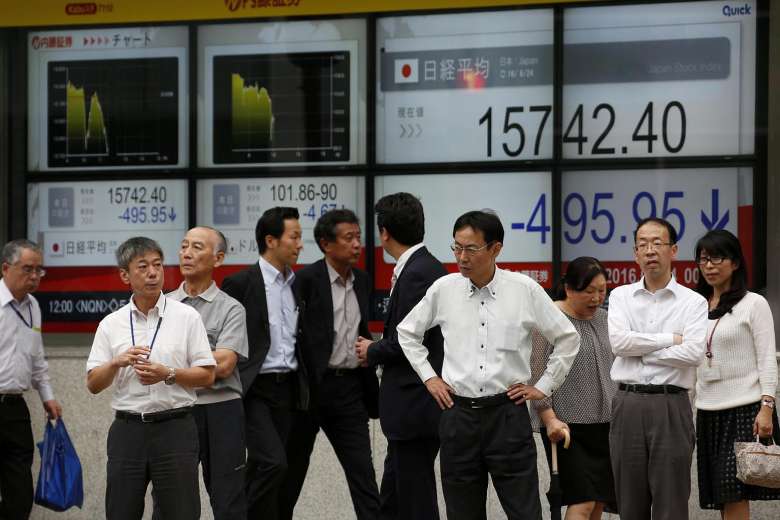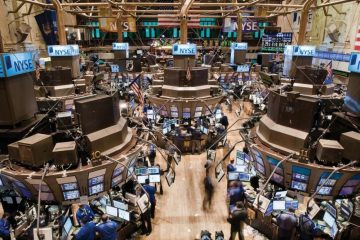Japan stocks turn hot post-Trump; shaky Europe makes Abe look good

TOKYO : When U.S. voters elected a president who promised to “Make America great again” they also convinced many investors that putting money in Japanese stocks would be a smart play.By weakening the yen against the dollar, Donald Trump’s shock victory in the Nov. 8 U.S. election succeeded in doing what Japanese policy makers have been struggling to do for most of this year.
For investors, the weak yen means Japan’s mighty exporters will be showing stronger earnings.
“The biggest beneficiary of this election is the Japanese market,” said Jonathan Steinberg, chief executive officer of U.S. asset manager WisdomTree, which manages $ 38 billion, of which $ 8 billion is invested in Japan.
“The world outside of Japan is understanding that they need to buy Japan, with the currency hedged, because of the inverse relationship between the currency and the equities,” he said.
The rise of populism in the developed world has also made Prime Minister Shinzo Abe look good, despite disenchantment over the failure of his “Abenomics” to reflate Japan’s economy.
Abe may have fallen short delivering structural reforms but he is still pro-growth, and is regarded as stable – he’s expected to stay in power till at least 2021 – and predictable.
That is a comfort for investors who could endure a roller-coaster ride with Trump, and fear upheavals ahead in Europe.
“No foreign investors are talking about ‘Abenomics’ any more. Instead, they are buying Japanese stocks on ‘Abe premium’, the stability of his government,” said Kyoya Okazawa, head of global markets, Japan and Korea at BNP Paribas Securities in Tokyo.
“At least you can predict his policies… you don’t know what France and Germany will do, or what the U.S. will do,” he added.
They don’t know who French voters will choose to replace President Francois Hollande. Doubts are creeping in over how Germany’s Chancellor Angela Merkel will fare in an election next year.
No-one knows how the British government will exit the European Union. And, Prime Minister Matteo Renzi’s defeat in a referendum at the weekend to reform Italy’s constitution has spread anxiety over the state of the EU, driving the euro to a 20-month low.
The confluence of these faraway factors had led to a sea-change in foreigners attitude toward Japan.
“The excitement is coming back for the first time in three years. I got a lot of requests for meetings from investors overseas,” Okazawa said, noting that foreign investors had been earlier overwhelmingly underweight Japan.
During the last three weeks of November, they bought 1.2 trillion yen worth of Japanese stocks. They’d begun buying a bit in October, after dumping 6.2 trillion yen in the first nine months of the year.
Some European asset managers have already upgraded their views on Japanese stocks.
Julius Baer, a Swiss private bank with assets under management of 327 billion Swiss francs ($ 324 billion), went from neutral to overweight two days after the U.S. election, its Asia chief investment officer Bhaskar Laxminarayan told Reuters.
Deutsche Asset Management, which manages 719 billion euro ($ 767 billion), also put Japan overweight, said Sean Taylor, chief investment officer for the Asia Pacific.
“Because of the yen, and because valuations of other equities are now more expensive, Japan looks much better,” Taylor said.
Takashi Ito, equity market strategist at Nomura Securities, estimated that a fall of one yen in the dollar boosts Japanese companies’ recurring profits by 0.4-0.7 percent.
Since Nov.8, the dollar has gained almost as much as 10 yen, with the Japanese currency weakening more than 8 percent to a 9 1/2-month low of 114.83 yen per dollar.
Japan’s Nikkei benchmark index has risen 6.4 percent since Trump won.
To protect their investments in Japanese stocks, foreign investors hedge their exposure to the weakening yen, and the performance from this currency-hedged strategy has beat most other stock markets since the U.S. election.
WisdomTree Japan hedged equity ETF, one of the most popular Japan stock ETFs listed in the U.S., has risen as much as 10 percent since the U.S. election.
But WisdomTree’s ETF was still up 9.0 percent, compared to 2.5 percent rise in U.S. S&P500 and fall in many other countries.
Similar currency-hedged ETFs for European stocks were down 0.6 percent while those for emerging markets have lost 3.3 percent.
Foreign investors have mostly bought the indexes and liquid large-caps, rather than select individual names or sectors, according to market participants.
And the biggest winners since the U.S. election have been financial shares that benefited from rising global yields, mirroring U.S. stock markets.
But going forward, fund managers say, they are particularly interested in robotics-related companies, including automakers and electronics makers that have a technological edge.
“We are overweight in high quality cyclical companies, mainly in the industrials sector. We continue to hold a positive view on companies such as Keyence Corp, Nidec Corp , Mitsubishi Corp, and Daikin Industries Ltd ,” said Daisuke Nomoto, head of Japanese equities at Columbia Threadneedle Investments in Boston.
“While uncertainties still exist around the details of Trump’s economic policy, these globally competitive companies should be able to capitalize on any pick-up of U.S. economic growth and also be able to weather a negative impact associated with any new trade policies introduced under the Trump administration.”

